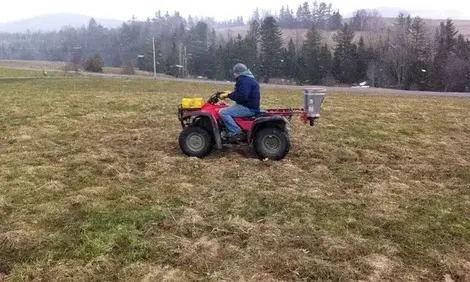



How Can Carbon Footprint of Beef Production be Reduced?
ANALYSIS - The beef carbon footprint in the shopping bag in the UK is one of the highest of all the products that is bought by the consumer.The Department of Energy and Climate Change is looking to decarbonise the industry and the sector has been hit hard by several damning reports.
Speaking at the recent Processor Conference run by Eblex in Stratford upon Avon, the Eblex Business Development Manager, Christine Walsh said that the beef sector is also expected to be affected by action from the EU looking closely at the environmental footprint in the Product Environmental Footprint programme.
The beef sector is one of several livestock and agriculture areas that that is included for investigation under the EU project.
The project is part of the European Commission’s Sustainable Consumption and Production Action Plan.
In the UK, at present, there are several projects already investigating ways of reducing the carbon footprint of food production including the Greenfoods project at Newcastle University and the Centre for Sustainable Energy Use in Food Chains at Brunel, Birmingham and Manchester Universities.
In the second quarter of this year, the European Commission is expected to be publishing proposals for waste and by-product regulations.
And through the Environmental Information and Documentation the Commission will be examining at the environmental impact of food production and the waste including the heat emissions, odours, noise, vibrations and the accident control in production as well as water use.
Ms Walsh told the seminar that the outcome of the European Commission environmental search is expected to be a number of high standards that are to be imposed on the food production industry and these regulations are also expected to be expensive.
She said that to be prepared for the regulations and the new standards the beef production sector needs to be prepared.
Now Eblex, working with the established environmental projects is aiming to set out the environmental ambitions for the meat industry over the next four years.
It is aiming to benchmark producers and processors to feed into the best available techniques (BAT) for reducing emissions and it is also aiming to set targets for theg British meat industry.
Ms Walsh said that by establishing Sustainability Clubs, Eblex hopes to be able to share best practice in research, training and knowledge transfer and build up a data base and factsheets.
She said that the meat industry organisation hopes to have the targets set and the companies working towards the plans by early 2016.
Ms Walsh said that through the project it is hoped that best practices can be shared to reduce the carbon footprint of beef production with savings going to the bottom line.



